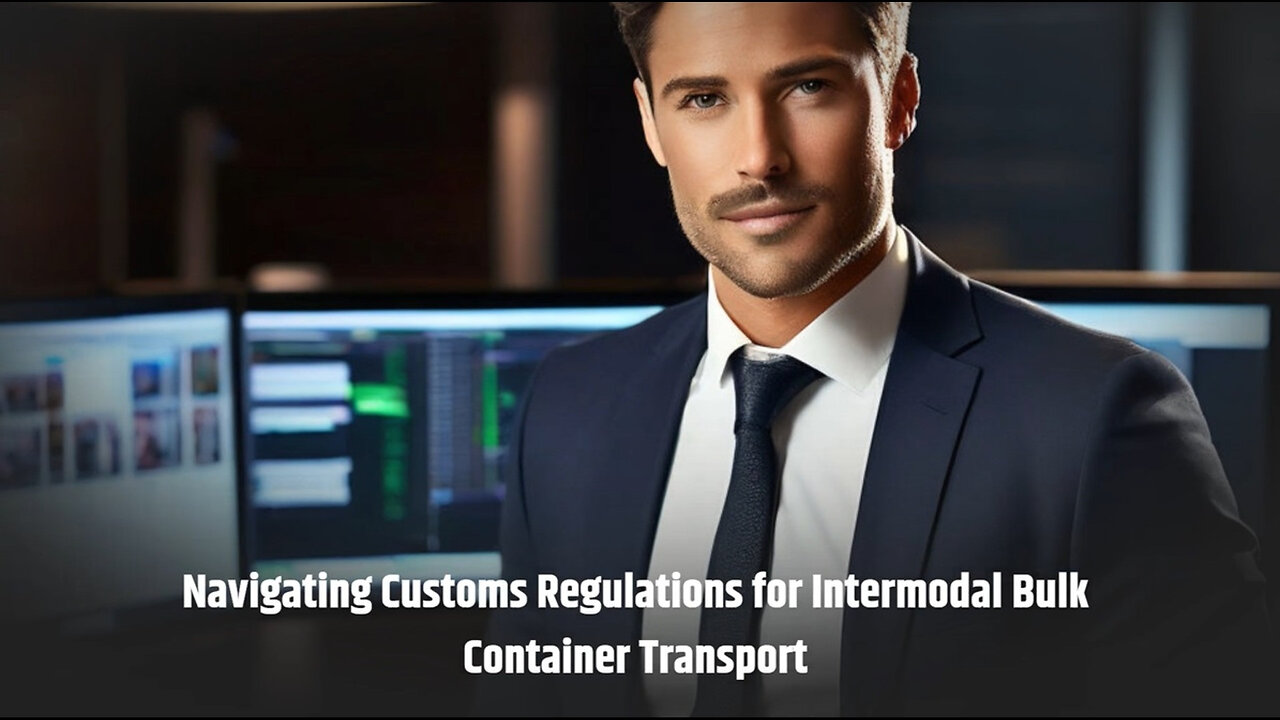Premium Only Content

Mastering Intermodal Bulk Container Imports: The Power of a Customs Broker
ISF Solution | (832-904-9333)
[email protected] | www.isfsolution.com
In today's video, we discussed the role of a customs broker in assisting with customs regulations for imports by intermodal bulk container transport. Intermodal bulk container transport involves the movement of goods using a combination of different transportation modes, and compliance with customs regulations is crucial in this process.
A customs broker acts as an intermediary between importers and customs authorities, providing expertise in navigating complex customs regulations. They assist importers in preparing and filing the necessary customs documentation, ensuring accurate descriptions, valuation information, and classification details. Customs brokers have in-depth knowledge of the Harmonized System codes, which are used for product classification.
Ensuring customs compliance is another key responsibility of a customs broker. They keep themselves updated with any changes or amendments to customs regulations and advise importers on various compliance requirements, including permits, licenses, or certificates. By working with a customs broker, importers can avoid costly penalties or delays resulting from non-compliance.
Customs brokers can also assist importers in arranging a customs bond, which is a financial guarantee required by customs authorities to ensure payment of import duties and taxes. Additionally, they help with filing the Importer Security Filing, also known as the 10+2 filing, which requires detailed information about containerized cargo before it reaches the port of destination.
Proper tariff classification is essential for determining duty rates and other import taxes. Customs brokers have the expertise to accurately classify products under the appropriate HS codes, enabling importers to comply with tariff regulations. They can also provide advice on duty optimization strategies, such as utilizing free trade agreements or duty exemption programs, to potentially reduce import costs.
In conclusion, partnering with a customs broker is crucial for importers utilizing intermodal bulk container transport. Their assistance in customs documentation, compliance, customs bond, ISF filing, and duty optimization ensures a smooth and efficient import process. Importers can rely on customs brokers to navigate the complexities of customs regulations and focus on their core business activities. Don't forget to subscribe to our channel for more informative videos.
#usimportbond #isfcustomsbroker #uscustomsclearing #isfentry
Video Disclaimer Here: For educational purposes - No affiliation with US government sectors.
00:31 Understanding Intermodal Bulk Container Transport
01:02 The Role of a Customs Broker
01:25 Customs Documentation and Filing
02:01 Customs Compliance
02:30 Customs Bond and Importer Security Filing (ISF)
03:10 Tariff Classification and Duty Optimization
-
 LIVE
LIVE
FreshandFit
8 hours agoArt Basel IRL Stream
8,597 watching -
 LIVE
LIVE
Drew Hernandez
20 hours agoKASH DENIES FOREIGN INVOLVEMENT IN CHARLIE KIRK MURDER & CANDACE WILLING TO MEET WITH ERIKA KIRK?
853 watching -
 LIVE
LIVE
Adam Does Movies
1 hour agoLive Taping! Reviewing Five Nights At Freddy's 2, Marty Supreme, Fackham Hall - Live!
685 watching -
 0:43
0:43
Gaming on Rumble
46 minutes agoLvl UP (Raids)
1 -
 LIVE
LIVE
SpartakusLIVE
5 hours agoBUYBACKS Have RETURNED || #1 Gamer w/ Most HEALTHY and VIBRANT Hairline
175 watching -
 2:13:41
2:13:41
TimcastIRL
3 hours agoCNN SLAMMED For Claiming BLACK J6 Bomb Suspect IS A WHITE MAN w/ Milo & George Santos | Timcast IRL
192K186 -
 LIVE
LIVE
SynthTrax & DJ Cheezus Livestreams
23 hours agoFriday Night Synthwave 80s 90s Electronica and more DJ MIX Livestream CHROMIUM Edition
114 watching -
 LIVE
LIVE
GritsGG
11 hours agoBO7 Warzone Is Here! Win Streaking! New Leaderboard?
46 watching -
 LIVE
LIVE
VapinGamers
2 hours ago $0.07 earnedDestiny 2 - Star Wars Renegade Lightsabers Oh My! - !rumbot !music
63 watching -
 2:13:17
2:13:17
TheSaltyCracker
3 hours agoPipe Bomb Bull Sh*t ReeEEStream 12-05-25
70K157